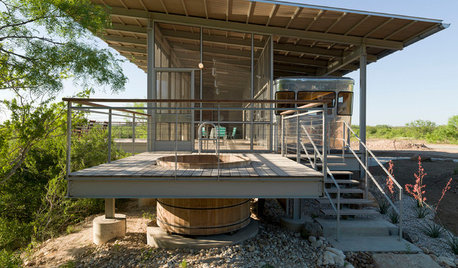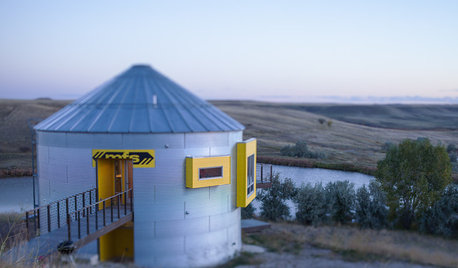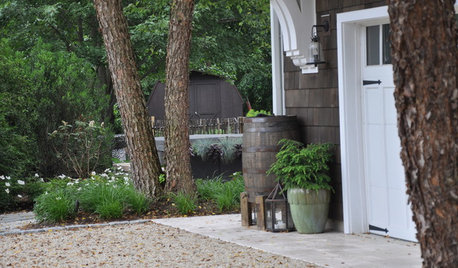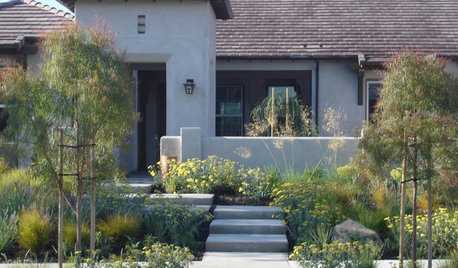Retirement savings
tishtoshnm Zone 6/NM
8 years ago
Featured Answer
Sort by:Oldest
Comments (15)
tishtoshnm Zone 6/NM
8 years agoRelated Discussions
Mom with MS and no retirement saved plus cheap brother
Comments (13)You need to check your LOCAL laws for permit requirements. Every municipality is different and you are wasting time asking strangers on the Net. Until you know what your local laws and zoning codes permit, it is again a waste of time to draw up any plans. Investigate modular housing and how your local codes handle these types. Also investigate manufactured (mobile) homes; if your local codes allow, it is the fastest and cheapest housing you can find. Make a ramp to go up to the front door for accessibility, or create room for a chair lift off a front porch. You also need to talk to Social Security or at least start reading their website. When and if your mother becomes disabled, disability might pay her more than SS might. Also, you need to become aware of the Medicaid asset limits and how they would apply to your parents. Most (80%)nursing home residents are there under Medicaid. However, any home health services used prior to failing the 3-ADL definition of disability; e.g., before she becomes disabled from MS, must be paid by the person/family's own funds (Medicare nor Medicaid never pays for home health care except under very limited circumstances). It is a great shame your brother is being so uncooperative. You need to start getting Power of Attorney and a Durable healthcare Power of Attorney on both your mom and dad immediately. Good luck and keep notes! Your brother may very well turn into a problem down the road, and you need to be thoroughly documented on any actions you take on your parents' behalf....See MoreRetiring and saving for Medicare costs
Comments (4)When my husband had chemo, our insurance paid 80%, just like Medicare. Our portion of the bill was $30,000. Luckily we could pay it. Now that we are on Medicare, we keep the other insurance to pay the 20%, good thing too. My DH has had 2 other cancers with expensive treatments. Thanks to Agent Orange. We would never trust his health to a the Dept. of Veterans Affairs or a Veterans Hospital....See Moreretirement age
Comments (35)Fascinating discussion, and timely for me, as I am trying to decide whether to retire. My wonderful boss left last month for a new job and they transferred in someone who is a total idiot. We saw our financial advisor on Monday and he agrees that we can afford it. I am 61 and hubby is 49; he has eleven years before he can retire from his job (not Federal). I have 29 years in the Fed government, so would get a defined pension and keep my health benefits. We have been saving at a good clip for the past 15 years (married for 17 years) but took a hit in the dot.com bust and again last year. Since the market went haywire, I've focused on paying off the mortgage. Have $18K left to pay. Right now, our investments are averaging 4%, so the mortgage paydown seemed like the better option. Expect to have it paid off by next year at the latest. (BTW, we don't include home equity in our "assets" because we would have to sell to obtain the value, and we love our location.) My problem may be off-topic. I have no idea what I would do if I retired. We don't have kids and our parents are healthy. I have hobbies, but can't imagine staying home all day. Most of my friends are still working. You are lucky that your DH may be retiring soon....See MoreAre you pleased that you built a tax-deferred retirement fund?
Comments (1)Forgive me Joyful but I am bumping this down. Posts that don't get a reply stay at the top indefinately and I find that I miss the new postings that come in, get a reply and fall below. I have bumped my own postings down when it became obvious there was not going to be a response. I didn't want to stay in the top position....See MoreJules
8 years agoMichael
8 years agobeaglesdoitbetter
8 years agopalimpsest
8 years agolast modified: 8 years agoUser
8 years agorococogurl
8 years agoMtnRdRedux
8 years agomaire_cate
8 years agolast modified: 8 years agoprettybluehouse
8 years agoratherbesewing
8 years agomaire_cate
8 years agotishtoshnm Zone 6/NM
8 years agoBestyears
8 years agolast modified: 8 years ago
Related Stories

HOUZZ TOURSWe Can Dream: Rural Retirement Home a Haven of Beauty and Tranquillity
A retired couple builds a spacious Japanese-inspired indoor-outdoor sanctuary to enjoy with extended family
Full Story
LIFERetirement Reinvention: Boomers Plot Their Next Big Move
Choosing a place to settle in for the golden years? You're not alone. Where boomers are going and what it might look like
Full Story
HOUZZ TOURSHouzz Tour: Prairie Grain Bin Turned Bucolic Retirement Home
An agrarian structure and a big dream combine in this one-of-a-kind home that celebrates 250 acres of Montana grasslands
Full Story
HOUZZ TOURSHouzz Tour: Retiring to a Midcentury Modern Gem
Vintage furniture fits the tone of this 1950s home, designed by modernist A. Quincy Jones, to a T
Full Story
SAVING WATER6 Reasons Why You Should Save Your Rainwater Now
Collect and store during the rainy season so you’ll have water ready for irrigation when you need it
Full Story
LANDSCAPE DESIGNGet Along With Less Lawn — Ideas to Save Water and Effort
Ditch the mower and lower your water bill while creating a feast for the eyes with diverse plantings and gathering places
Full Story
KITCHEN CABINETS9 Ways to Save Money on Kitchen Cabinets
Hold on to more dough without sacrificing style with these cost-saving tips
Full Story
REMODELING GUIDESWhere to Splurge, Where to Save in Your Remodel
Learn how to balance your budget and set priorities to get the home features you want with the least compromise
Full Story
DECORATING GUIDESBudget Decorator: How to Save When You Don’t DIY
You don’t have to be crafty to decorate your home inexpensively. Here are other ways to stretch your design dollars
Full Story
Daylight Saving Time: Gain an Hour — and a Bright Interior
Make up for shorter days with splashes of white, color and reflected light
Full Story





RNmomof2 zone 5